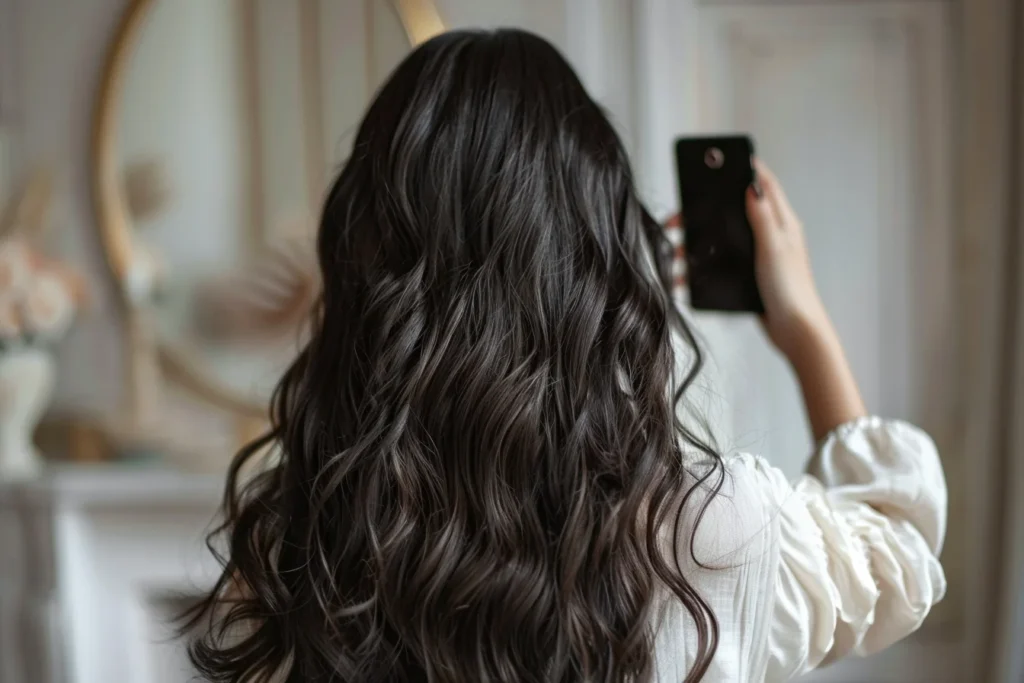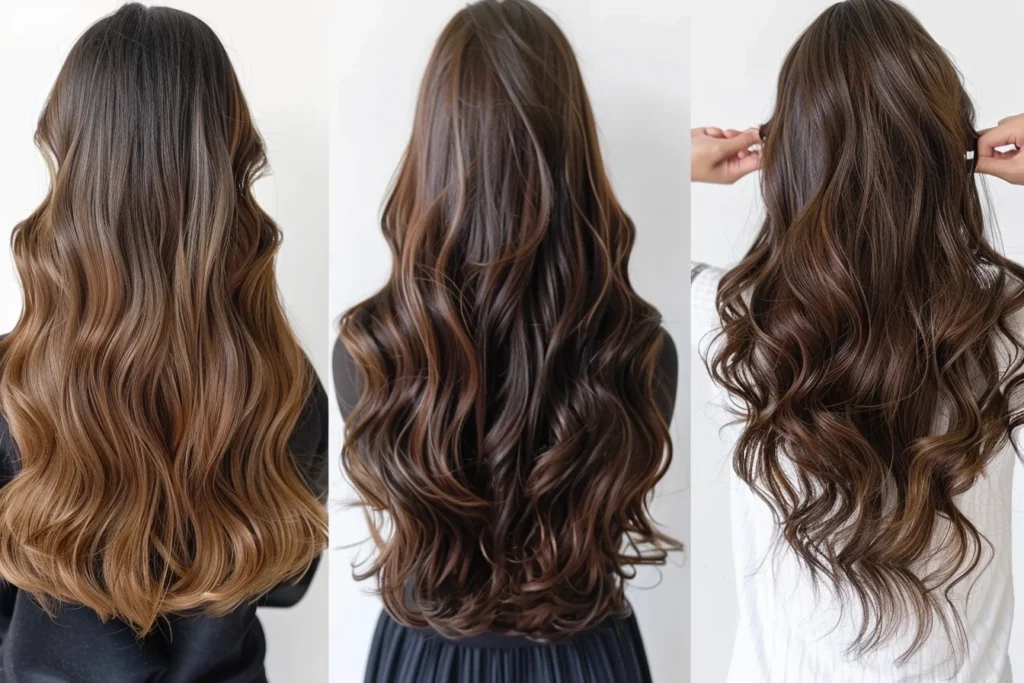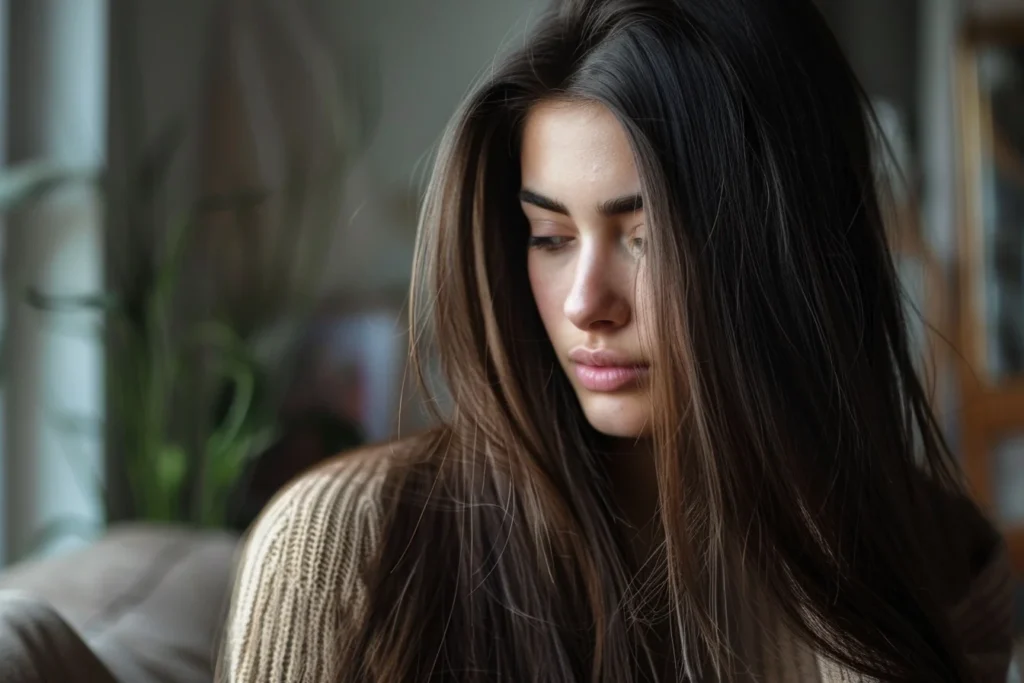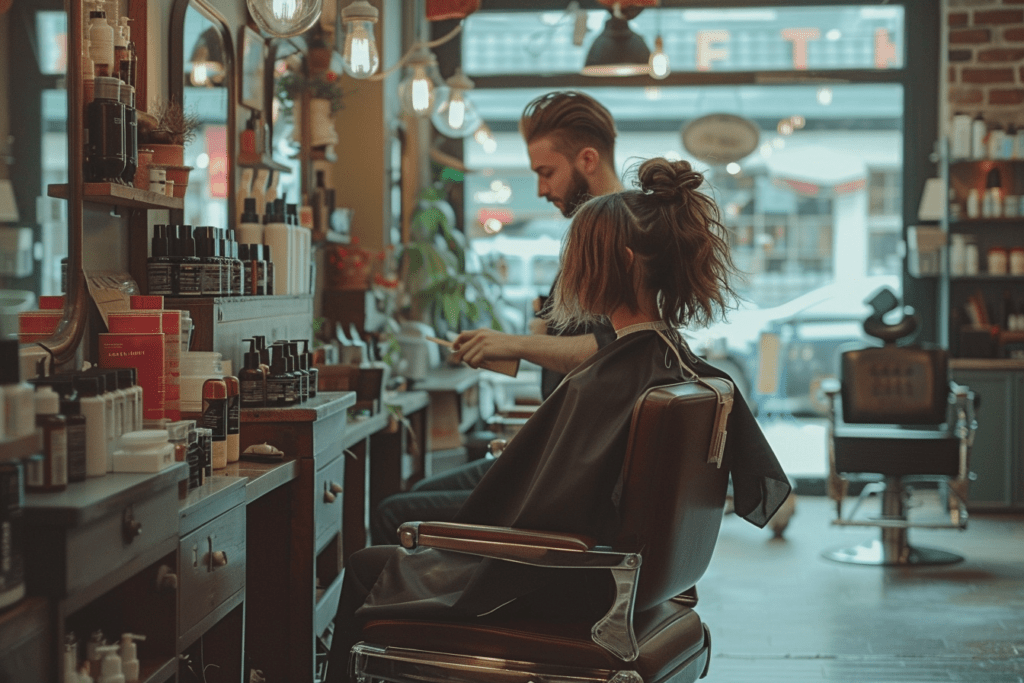There’s a possibility that hard water would damage your hair. While even regular water can cause damage to your hair, this is how you can minimize the effects and what to look out for.
WHAT IS HARD WATER?
Hard water is any type of water with high mineral content, primarily consisting of calcium and magnesium.
Soft water is low to moderately mineralized water.
It has been said that drinking hard water may be slightly healthier but it does no good to the hair in fact it can be quite harmful.
HOW DO I KNOW IF I HAVE HARD WATER?

If you’re in America just google it and there will be details for every area.
However, there’s an easy way to check at your home – have a look around your bathroom if there are any signs of limescale on your tap or shower head then chances are you have hard water.
In Australia, we’re fortunate enough to predominantly have soft metropolitan areas. In rural areas like where I live in NSW or places like Alice Springs which relies on bore water, you probably do though.
Harder towards the midlands and south whereas softer towards north England. Most parts of Europe have harder waters while few exceptions have soft ones.
AT-HOME TEST FOR HARD WATER
Here’s another way you can test whether or not you have hard water at home. Take some shampoo (or soap) in a little bit of water and stir it all up together. Check how much foam forms on top.
You’ll get lots of froth and foam if you’ve got soft water but trying to get soap lathered up is something else entirely when using hard one.
WHAT DOES HARD WATER DO TO YOUR HAIR?
Hard water opens up cuticles making the hair rougher and more prone to tangles as well as knots caused by increased mineral deposits in hairs which make them dry as well as knotty ones too sometimes.
WHAT TO DO IF YOU HAVE HARD WATER?
If you live in a house you can have a water softener fitted. Our friends in the UK all have this and when I stay with them, my hair is so much better than anywhere else in the UK.
Alternatively, if you can’t change your water system you can get a shower filter head. These shower filters make such a big difference and you just replace the filter as needed for your water to remain clean when it hits your hair.
ANY WATER WILL DAMAGE YOUR HAIR?!
Do you know that regardless of what kind of water you have, it ruins your hair?
Water causes the hair shaft to swell and expands the cuticles. Moreover, one way to get split ends is by allowing stresses into the hair shaft through keeping wet hair for very long time periods.
Hence if taking very long to dry blow drying your hair on medium heat damages it less than leaving it wet. Weird but there are tests done on this.
HOW TO FIX HAIR DAMAGED FROM HARD WATER

Shampoos known as “chelating” shampoos exist for this purpose. Specifically, these clarifying shampoos attach to minerals and take them away from your hair.
These chelating shampoos are quite strong cleansers and should be used sparingly, however, I do advise using them if you live in an area with hard water so that any mineral deposits can be removed from your hair.
I would also suggest a detox or clarifying shampoo once per week / every two weeks depending on how often you wash your hair.
For many people, including me, who are enthusiastic about hair care; working with hard water can be a real drag. I personally have experienced different water qualities effects on my hair and I must admit that it is difficult.
Here are some insights to minimize the damage caused by hard water and how to notice when your hair is affected.
Understanding Hard Water
Primarily containing calcium and magnesium, hard water has a high mineral content. Since these minerals usually interfere with the lathering of shampoos and soaps, people often use more than they require. On the other hand, these excessive minerals can also make your hair feel like straw or hay.
Signs of Hard Water Damage
Inability to Lather: It is really tricky to make soap or shampoo froth easily when using hard water.
Accumulation of deposits: For instance, in the bathroom, you might see a film or paste covering surfaces while on your head you will feel a residue too.
RELATED: 31 Trendy Layered Bob Hairstyles for Fuller Fine Hair
Hair Feels Rough and Tangled: Due to its roughness, the ions found in this type of water tend to tangle into an individual’s hair thus causing it to become rougher than normal.
Personal Experience and Solutions

According to first-hand experience, living in an area with such kind of untreated natural resources could mean risking our own hair. This section outlines what has worked for me and may work for you as well:
Install a Water Softener:
If possible, having a whole-house softener is better since it would clean your home equipment before affecting it or damaging your scalp.
Use a Shower Filter:
Alternatively, one may purchase showerhead filters that provide faster solutions at lower costs.
They greatly reduce the hardness of water that instantly flows through one’s mane when bathing.
Chelating and Clarifying Shampoos:
Include this product once per month in order to fight against build-up on your head from any mineralized substances brought by water hardness.
To maintain proper hair cleanliness, a clarifying shampoo may be used at least once every two weeks to one week.
Regular Rinses:
Rinse your hair with distilled or bottled water after washing it to remove any remaining mineral deposits. Additionally, use diluted vinegar rinse (apple cider or white vinegar) for closing cuticles and removing buildup thereby restoring shiny and smooth hair.
Additional Tips

Minimize Wet Time: Do not let your wet hair stay for quite a long time since water of any type, hard or soft expands the shaft hence causing damages.
RELATED: Top 29 Long Blonde Hairstyles for Thin Hair
Instead of air-drying them over extended periods, drying using low or medium heat from a blow dryer can actually cause less harm.
Deep Conditioning: Hard water might make the texture of your hair rough; therefore, you should deep condition it regularly.
These products contain elements like argan oil, keratin, and shea butter that help lock in moisture and keep our manes silky.
However difficult it is to maintain natural and shiny hair in hard water regions, there are tools and techniques that can help achieve this.
Although it might change the practices you have towards your tresses slightly, the results will be worth it!

